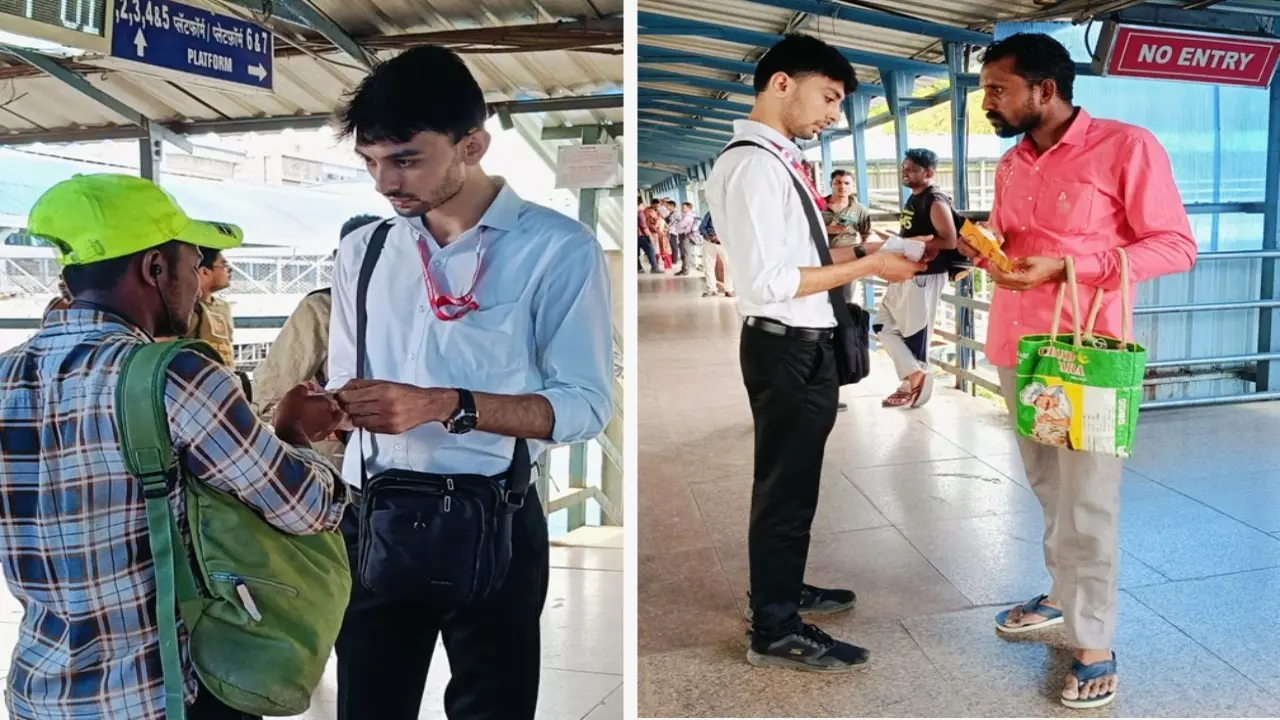Central Railway’s Mumbai Division has penalised over 980 passengers for travelling without valid tickets or passes in First Class compartments across suburban trains. The action, which recovered over ₹3.18 lakh in fines within just eight days, marks one of the most impactful ticket-checking drives in recent times. Launched on June 16, the special campaign continued until June 23, 2025, with operations conducted during morning and evening peak hours across the Main Line, Harbour Line, and Trans-Harbour Line.
The initiative followed persistent complaints from daily commuters about unauthorised passengers occupying First Class coaches, thereby diminishing the travel experience for legitimate ticket holders. A senior official from Central Railway confirmed that a total of 984 cases of unauthorised travel were registered during the inspections. A team of 41 ticket-checking staff, assisted by seven Railway Protection Force (RPF) personnel per shift, inspected 103 train services over the course of the week. These surprise inspections were carried out across key routes in the network, specifically targeting coaches known to experience high volumes of ticketless travel.
Officials pointed out that the initiative received an overwhelmingly positive response from the public. “Many First Class commuters extended support to railway teams during inspections and even helped identify unauthorised travellers,” an official stated. This collaborative engagement underscores a growing awareness among commuters about fare integrity and the role it plays in maintaining comfort and order in Mumbai’s overburdened suburban system. What sets this ticket-checking operation apart is not just the volume of fines collected, but the broader behavioural shift it seems to have triggered. According to Central Railway data, there was a notable reduction in complaints about fare evaders in First Class compartments on the routes inspected. This improvement, officials say, is linked directly to the visible and consistent presence of ticket-checking staff, which acted as a deterrent against unauthorised travel.
The impact of the drive wasn’t limited to fines alone. The railway authority also reported a 10% increase in ticket window sales across affected corridors, suggesting a rise in pre-journey compliance. For Central Railway, which moves millions of passengers daily, such a revenue jump in a short period signals both increased enforcement efficiency and commuter behaviour correction. According to transport experts, the cost of fare evasion in Mumbai’s suburban network has traditionally been high—not just in terms of lost revenue, but also in degraded travel quality and overcrowding. First Class compartments, which are designed to offer a relatively more comfortable journey for those paying a premium fare, have often become targets for unauthorised access. This not only creates discomfort for genuine passengers but also raises concerns around safety and fairness.
Railway officials stressed that their efforts were part of a larger agenda to modernise commuter services and create an equitable transport environment. The enhanced vigilance is also aligned with the broader policy direction towards increasing ridership accountability, encouraging digital ticketing, and implementing smart surveillance measures across trains and stations. While ticket checks have always been part of routine railway enforcement, the scale and focus of this special drive were significantly larger. “The objective wasn’t to just penalise, but to create a deterrent framework, enhance trust among fare-paying passengers, and encourage responsible travel habits,” said an official involved in the operation.
The drive also complements Central Railway’s ongoing plans to improve service quality and infrastructure on suburban lines. As part of its sustainability goals, CR has been working on increasing the adoption of digital ticketing and transitioning towards paperless travel. The revenue uptick observed during this drive could feed back into service upgrades and station modernisation, thereby reinforcing a virtuous cycle of compliance and comfort. Despite the success, officials acknowledged that sustained vigilance is necessary to keep fare evasion in check. Ticketless travel, particularly in peak hour suburban services, has been a long-standing issue owing to sheer commuter volume, lax enforcement during non-peak hours, and lack of awareness or willingness among certain user groups. Experts believe that repeated drives, increased digital monitoring, and targeted communication campaigns could deepen impact in the long run.
For now, Central Railway has issued a fresh appeal to all passengers urging them to travel with valid tickets or passes. Officials reminded that fare compliance is a civic responsibility and essential to the functioning of a public transport system that supports over 70 lakh daily riders across Mumbai. With citizens increasingly demanding improved travel environments and comfort, especially in paid premium classes like First Class, enforcement actions such as these reflect the changing expectations from urban transport infrastructure. The message is clear: restoring commuter confidence requires consistent action, visible enforcement, and collective ownership of public space.
As Mumbai’s rail authorities step up their drive to build a cleaner, safer, and more disciplined transport culture, this initiative may serve as a benchmark for similar interventions across other metro cities struggling with fare evasion and compartmental crowding.
Also Read : Maharashtra power bills rise by 3 percent 100 unit users


